We talk a lot about the importance of accountability in overcoming pornography. We’re an accountability company, so it’s really no surprise. But have you ever wondered why accountability is so effective?
Before we can understand accountability and why it’s so effective, we have to understand addiction and how it works. And understanding addiction begins with realizing that addiction can sometimes be understood as an attachment disorder.¹ Allow me to explain what I mean.
Understanding the Attachment Cycle
Let’s go back in time to the moment in which you were born. As a newborn, you are small, fragile, and completely helpless. The world is a scary place, and you have no idea how it works. Almost immediately, you feel a discomfort like hunger, or maybe you are afraid.
How do you get these needs met? You can’t communicate, so the only thing you can do is cry. If all goes as it should, a loving mother will soon take you in their arms, speak gentle and comforting words to you, and meet your needs.
Time passes. You are now a five-year-old boy. You are more confident and can do many more things for yourself, but you still have things to learn. You are learning to ride a bike for the first time without training wheels. You start riding down the sidewalk, wobbly, but without support. But then, you suddenly realize what you are doing and panic. You crash to the ground and scrape your knee. Overwhelmed by pain and embarrassment, you burst into tears. Your father, who was helping you, rushes to your side, picks you up, and encourages you to try again. Your tears subside, and you calm down.
I could go on, but the basic idea is that our physical and emotional needs are recognized and met by those who love us. In a healthy childhood, scenarios like the above are enacted hundreds and even thousands of times, and as a result, we begin to develop trust, which is essential for healthy human flourishing. Into adulthood, we learn to turn to our friends or spouse instead of our parents to find comfort, but the principle remains the same.
A healthy attachment cycle looks something like this:
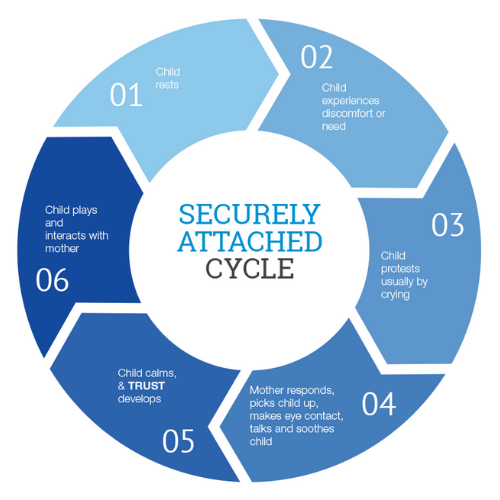
Because our needs are met, we begin to form beliefs about the world. Beliefs like:
- The world is a safe place
- People are good and worthy of trust
- I am worthy of love and acceptance
- My emotional needs will be met by those who care about me
- Connection to others gives me what I need
When bad things happen to us or we feel painful emotions, we are able to control, regulate, and soothe them. We can do this because of our fundamental beliefs about the world. What happens to us in life is not nearly as important as what we believe about what happens to us. What we believe determines how we interpret events, and how we interpret events has everything to do with how we act.
If we are securely attached, we don’t generally blame ourselves when bad things happen. We don’t get angry and curse our fate. We have confidence and hope that things will get better because we believe the world is a good place. This hope gives us strength to endure trials.
But what happens when attachments don’t form properly? What happens when you cried and no one came? Or you experienced humiliation and no one cared?
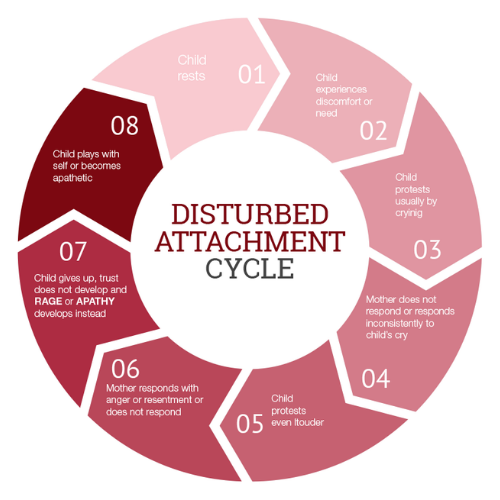
You feel helpless, and in your helplessness, you begin to feel angry and ashamed. And you also begin to form beliefs about the world, like:
- The world is a dangerous place
- I can trust no one
- I have to meet my own needs however I can
- I am not worthy of love and care
Again, these beliefs matter. Beliefs are the basis for action. Faulty beliefs lead to faulty actions, and vice versa. These beliefs can be formed slowly over time, or all at once through a traumatic event.
However they are formed though, they generally mean we have an impaired ability to cope with the stresses and discomforts of life. We become hypervigilant and anxious, on the lookout for danger. Instead of reaching out to family or friends when we are in pain, we don’t open up to anyone because, fundamentally, we don’t trust people and we believe they won’t be there for us.
Pornography and Attachments
So what does the attachment cycle have to do with pornography use?
At some point, we will all feel pain, discomfort, or stress in life. Our attachments form beliefs about these events, and if we are weakly attached, we are not going to turn to others to find comfort. We believe, rightly or wrongly, that they won’t be there for us. Ashamed, we fear judgement, anger, or apathy. Instead, we turn to turn to something that can consistently and effectively make us feel better. For some people, that is porn.
Given enough time, porn becomes almost a surrogate lover, soothing us when we need it. While other people can feel unreliable, it is always there for us, freely available to give us a high that temporarily helps us forget our pain.
The problem is, it’s a deception. While it may feel good in the moment, pornography always, and I do mean always, makes the problem worse. The high doesn’t last, and when we come down from it, we realize all our problems are still there.
Even worse, we are isolated and ashamed. And the pain of this shame and isolation is overwhelming. It drives us right back to porn to begin the cycle over again.
Related: Shame’s Massive Role in Porn Use
Enter Accountability
Finally, let’s get back to the question we asked at the beginning: Why does accountability work so well?
Accountability works because it helps us repair the attachment cycle by relearning trust. Porn addicts are plagued by shame, and shame leads to fear and distrust, and distrust leads to isolation. Isolation means we don’t reach out when we are in pain, but rather turn to surrogates like porn. But porn leads us back to shame which starts the cycle all over again.
The only way to end this infinite loop of pain, shame, and isolation is relearning trust, and the best way to do this is through accountability.
It’s important to emphasize that good accountability is non-judgemental. It should never be fear based or it will simply drive us back to porn. When we experience this non-judgemental acceptance, it helps us overcome the temptation to go it alone. Instead of turning to porn, we learn to reach out instead. Connection to another person diffuses the temptation of porn. Our ally doesn’t judge us but helps us get through our stress and anxiety and regain equilibrium.
Accountability isn’t a magic bullet that will solve your porn struggle instantaneously. Just as physical wounds take time to heal, it takes time to relearn trust and genuine vulnerability. It can take time to learn the habit of reaching out when we are uncomfortable, stressed, or in pain. But it is the only way to end the shame cycle and begin to live a life of sexual integrity.
You may be sceptical about all of this, and that’s understandable. The best way to prove it, one way or the other, however, is simply to try it. Over a million users can attest that accountability is a powerful way to overcome porn, and we have the stories to prove it. Try Covenant Eyes and experience for yourself the difference accountability can make.


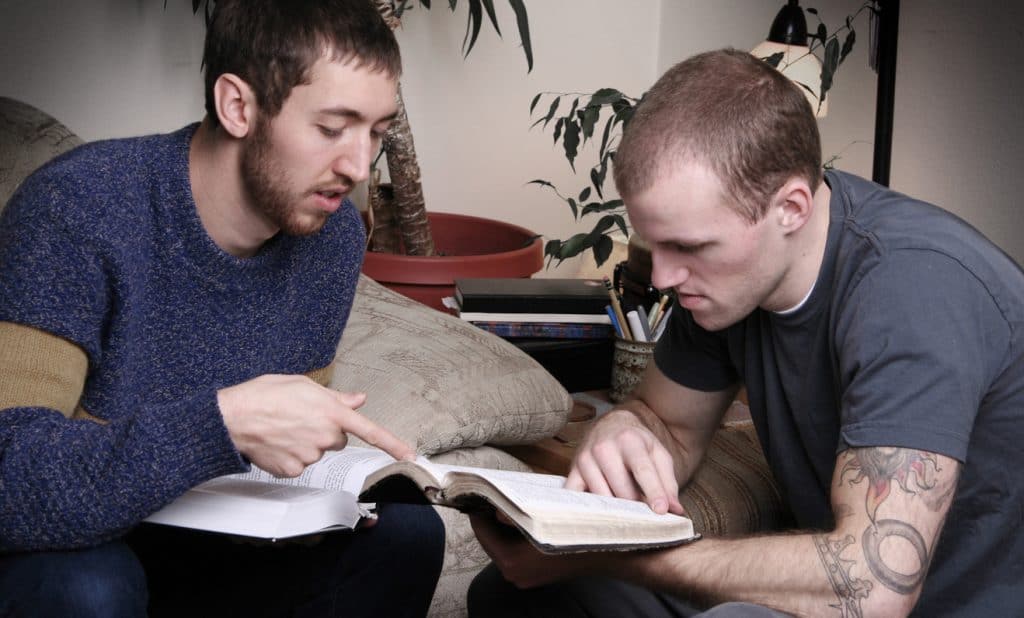


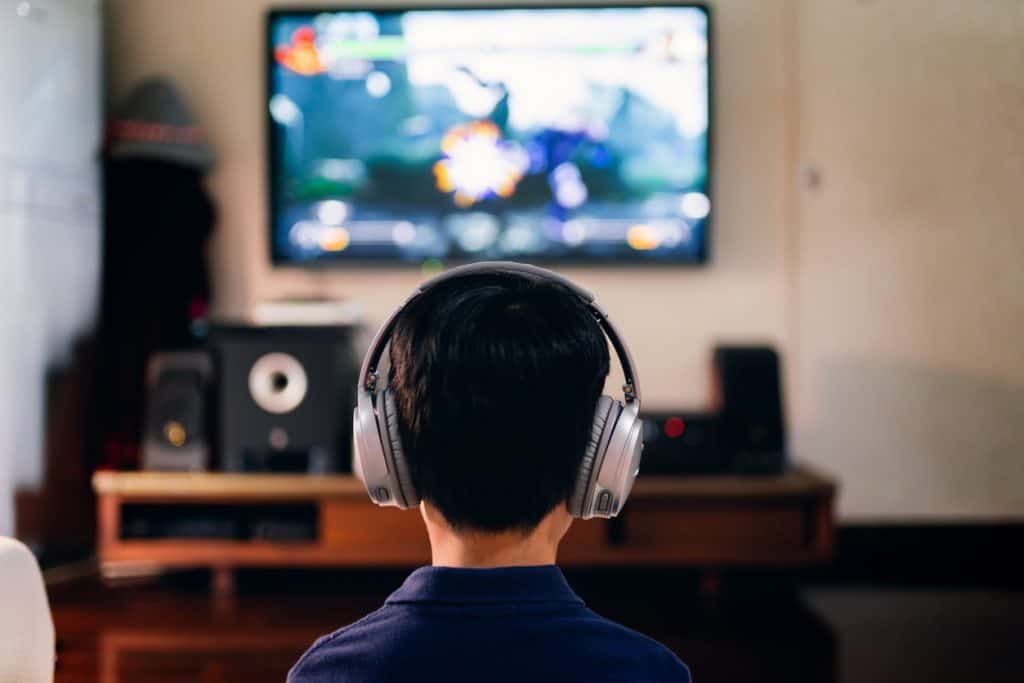

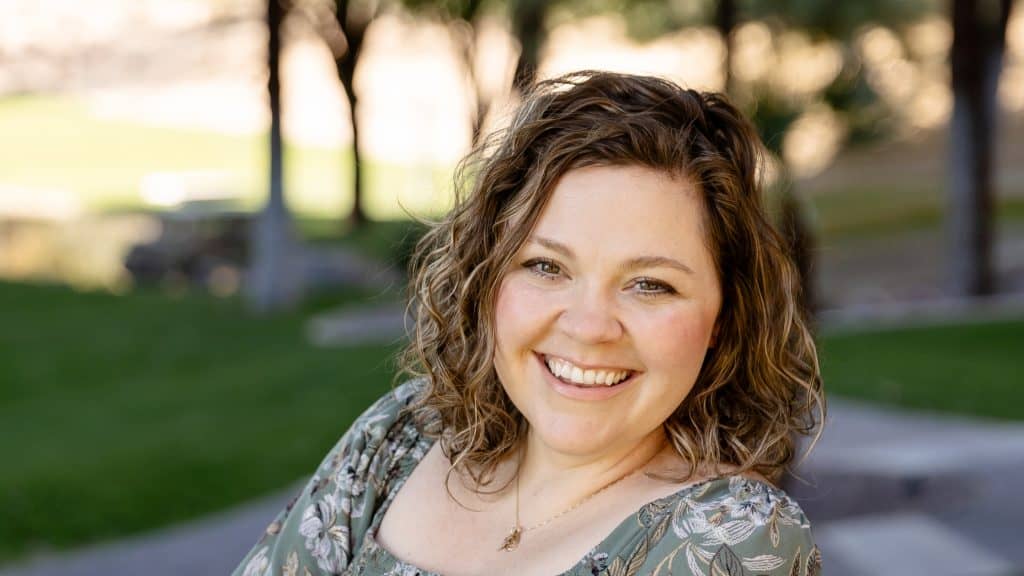
0 comments.